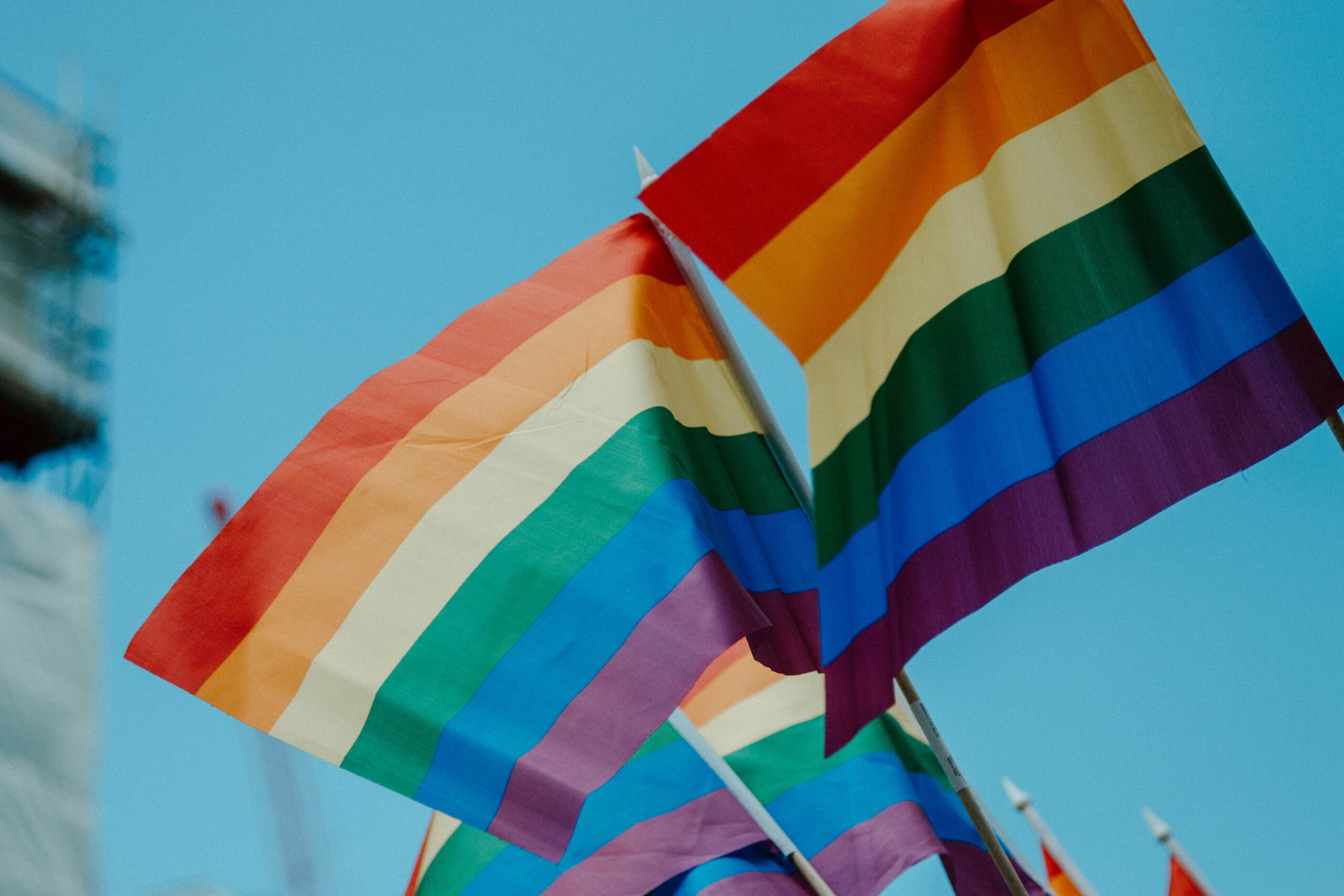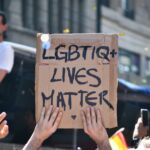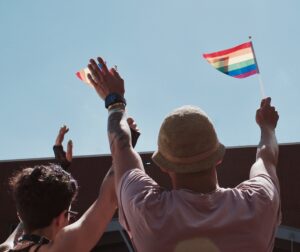5 Ways To Become A Better LGBTQ+ Ally
Have you ever wanted to support your LGBTQ+ loved ones more? Do you want to learn how to become a better ally to this community? If you want to learn about being an LGBTQ+ ally this Pride Month, keep reading!
What is an Ally?
You may be wondering what an ally is. Merriam-Webster defines an ally as a person or group joined together for a shared purpose. In terms of social justice, allies are people who are not part of the certain group, but use their privilege to help advocate and bring awareness to marginalized people.
For example, an ally of the Asian American community may have spread awareness and support for this population during the rise of hate crimes in America in the past years. Being an ally is helping fight for people and the rights they deserve.
Why is Being an LGBTQ+ Ally Important?
The phrase “no one is free until we are all free” speaks to this topic. Even if you feel like we have come a long way as a society, there is still a long way to go. People in the LGBTQIA+ community face many struggles in this world to this day.
For instance, mental health for people in the LGBTQIA+ community is at risk. Many people who are part of groups that face hatred deal with minority stress. Our society’s mistreatment of queer people is a huge cause of this distress. People in this community face judgment and discrimination throughout their life and many areas of their life.
Notably, the workplace can feel unsafe for many people. Queer workers can face anything from mean looks to physical violence or emotional abuse.
Coworkers endlessly question a lesbian after putting a framed picture on her desk of her family. Someone who is gender-fluid faces unfair dress code rules. Fellow workers threaten a transgender employee. These are all instances that can happen to queer people who are just trying to do their job.
Furthermore, people of color (POC) in the LGBTQIA+ community face more chances of discrimination because they are part of multiple oppressed groups. Black and Latinx transgender women face rising rates of murders. In 2021, there have already been 28 transgender or gender non-conforming killings. There are many other concerns that the LGBTQIA+ community face such as hopelessness, self-hatred, religious trauma, mistreatment in healthcare, etc.
It is important to be an ally because we will never be equals in a society that harms certain groups. We need to all do our part to help people who are being hurt and uplift them. There is no true freedom when things like racial, religious, and LGBTQIA+ hatred are still alive in this world.
How to Become a Better LGBTQ+ Ally
Here are some actions that can help this community:
First, Listen to, Uplift, and Share Queer Voices
One of the best ways to learn about queer experiences is to listen to LGBTQIA+ people share their stories. There may be someone who is cisgender and is very knowledgeable about transgender issues in society – this education can be useful in many ways, but the life experience and knowledge that someone who is transgender lives every day is also maybe even more valuable to learn from.
This month, try to listen to queer voices more. If you want to learn more about the struggles of lesbians, try watching a youtube video or reading an article by a lesbian on these topics. This can also apply to racial issues – instead of only watching or listening to white speakers about issues black people face, read books or listen to black voices more.
Once you hear these stories, try and share them with others to uplift and amplify these speakers.
All voices are valuable to the fight against hatred. However, part of growing your understanding and empathy is seeing things from other people’s point-of-views more.
Second, Be There for LGBTQ+ Loved Ones
When someone comes out to you or tells you about their experience, give them an affirming response. Studies show that social support is vital for the mental health and wellness of LGBTQIA+ people. Social support can help protect against mental health concerns.
If someone shares their story with you, it means that they feel like they can trust you and lean on you for support. Show them love by:
- Thanking them for sharing this information with you
- Respecting their wishes if they want to keep this information private
- Being there for them when they want to share their concerns
- Listening to their experience
- Checking in with them if they seem like they are going through a hard time
Third, Support and Consume LGBTQ+ Businesses and Media
High rates of LGBTQIA+ people faced unemployment during the pandemic. For this reason, if you can, it’d be great to support LGBTQIA+-owned businesses. The next time you want to go out to eat or buy new jewelry, try finding a queer-owned restaurant or store in your area or online buy from.
Fourth, Share Your Knowledge to be an LGBTQ+ Ally
There are times where you will face people who say mean things about the LGBTQIA+ community. If you feel comfortable about your opinions and want to share them with others, go for it! Sometimes, people might not mean to be hurtful but they do not know any better. For example, some people still use the term “that’s gay” to describe things they find weird. If you hear someone say this, try explaining to them why this is wrong and how it is hurtful to gay people.
Also, try to keep people around you that support LGBTQIA+ people. Not all people will think the same as you. We all have different opinions, however, people who are hateful or harmful to the LGBTQIA+ community are harming innocent people for being themselves.
Fifth, Stand up in Your Own Way to be an LGBTQ+ ally
We all have different ways we deal with injustice we see. Some people are more direct and others are more passive. If you are in school and see someone being harmed, help them in your own way. For example, if you see someone bullying a student for being gay try to help them. If you do not want to directly get involved, tell a teacher or adult that is around.
Also, try to be there for the person being bullied and check in with them. Social support is so important to the wellness of LGBTQIA+ youth. Sometimes having a supportive friend can make all the difference in someone’s life! Also, if you think about it, an ally is like being a good friend to someone.
Mind Connections wishes you a Happy Pride Month! We provide affirming counseling for LGBTQ+ individuals and couples. If you struggle with harassment, hatred, related stress, anxiety, depression, or any other mental health challenge we are here to provide LGBTQIA friendly therapy! Call us free for 15 minutes to discuss your concerns and seek pride counseling.
Content Creator, Victoria Gallo; Reviewed by Dr. June Cao





